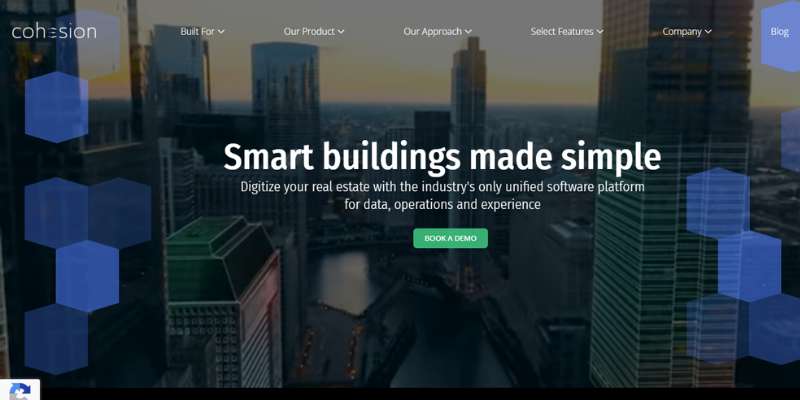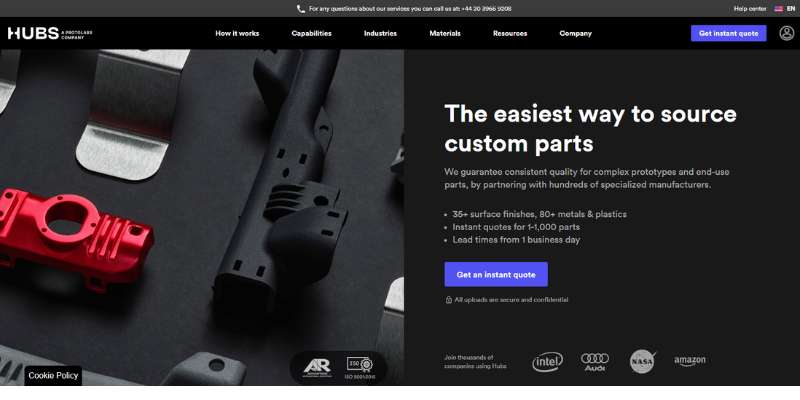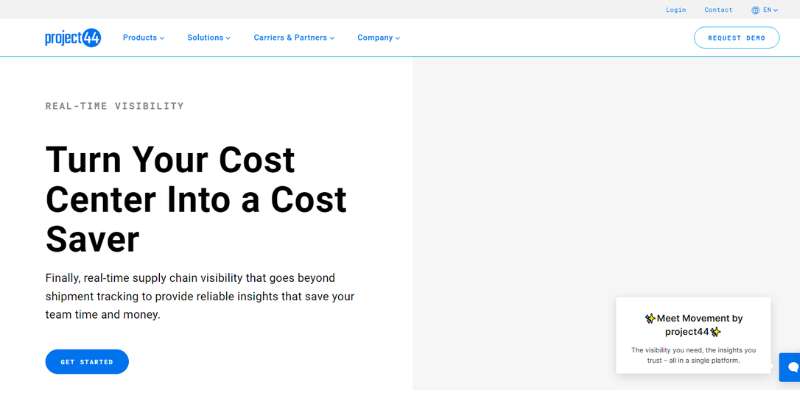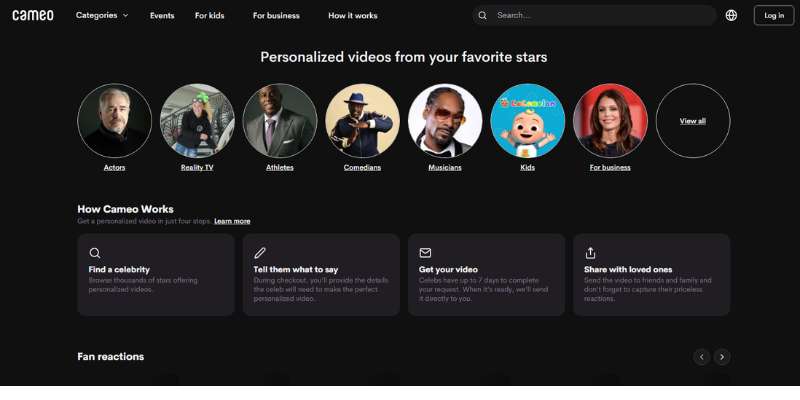Imagine a bustling ecosystem, a place where innovation meets the Midwestern work ethic and births a vibrant melange of fresh business ideas. Chicago startups are redefining the entrepreneurial landscape, forging paths strewn with technological advancements and creative breakthroughs.
In the heart of the Windy City, where skyscrapers grace the sky and ambition fuels the day, lies a hub for movers and shakers eager to leave their mark.
This article dives deep into the nitty-gritties of Chicago’s flourishing startup scene. You’re not just reading on – you’re unlocking a treasure trove of insights that the city’s tech conferences, incubators like 1871 and mHub Chicago, and innovation awards keep under wraps.
By the time you reach the final punctuation mark, you’ll have gained a crystal clear window into startup funding opportunities, networking must-dos, and maybe the spark to ignite your entrepreneurial spirit.
We’re dissecting the why and how of startup success in the city’s ever-evolving tapestry of business adventures.
Prepare to navigate the Chicago startup ecosystem, equipped with expert knowledge on overcoming growth hurdles and tapping into the right resources. It’s time to turn the page, and perhaps, start your own Chicago story.
Chicago Startups
| Startup | Industry/Sector | Description | Key Offering(s) | Notable Achievement |
|---|---|---|---|---|
| Tanium | Cybersecurity | Endpoint security and systems management platform | Real-time endpoint data | Raised over $900 million |
| AllBetterApp | Healthcare/Mental Health | App connecting users with licensed therapists | Online therapy matching | Innovative mental health app |
| Avant | Financial services | Online lending platform for consumers | Unsecured personal loans | Loaned over $6.5 billion |
| Rise | Workplace Productivity | Collaboration platform for improving workplace inclusion | Inclusion analytics | Growth in enterprise clients |
| HighTower | Financial Management | Investment management firm for high-net-worth clients | Wealth management services | $75 billion in assets |
| Tegus | Market Research | Platform for investment professionals to gather insights | Expert call transcripts | Expansive expert network |
| Hallow | Religion/Meditation | Catholic prayer and meditation app | Guided prayer sessions | Popular in faith communities |
| Cohesion | Real Estate Tech | Smart building platform for commercial real estate | Integrated building systems | Smart Infrastructure |
| Hubs | Manufacturing | Online platform for custom manufacturing services | 3D printing, CNC machining | Acquisition by Protolabs |
| Tempus | Health Tech | Platform for precision medicine and clinical data analysis | Genomic sequencing services | Partnerships with NIH, Mayo |
| Project44 | Logistics & Supply Chain | Advanced visibility platform for shippers and logistics firms | Real-time tracking | $202 million Series E |
| Kin | Insurance Tech | Insurance tech company specializing in home insurance | Affordable homeowners ins. | Direct-to-consumer model |
| Cameo | Consumer Tech | Platform for booking personalized messages from celebrities | Celebrity video shoutouts | Viral popularity |
| M1 | FinTech | Investment platform offering automated investing | Personal finance tools | Over $2 billion in assets |
| ThreeFlow | Insurance Software | Software for benefits brokers and carriers | Benefits placement platform | Streamlining benefits proc. |
| Clearstep | Health Tech | AI-driven healthcare chat solutions for patients | Smart care-routing chatbot | Helping reduce misdiagnoses |
| Prelude | Fertility Health | Fertility clinic network offering assisted reproductive tech | IVF and egg freezing | National clinic network |
Tanium

Tanium, the only company in the market to offer convergent endpoint management (XEM), is driving a paradigm shift in how complex security and technological environments are managed.
By combining IT, Operations, Security, and Risk into a single platform that offers thorough device visibility, a unified set of controls, and a common taxonomy for a single shared purpose—protecting critical information and infrastructure at scale—only Tanium protects every team, endpoint, and workflow from cyber threats.
Tanium is ranked among the Best Big Workplaces in Technology by Fortune and has been included on the Forbes Cloud 100 list for six years running.
AllBetterApp

The app AllBetterApp makes life simpler for property managers. Property managers and owners can publish a job and their budget on the startup’s website to request bids from pre-screened contractors.
The software is perfect for absentee landlords and property owners because contractors can upload images of the finished project and provide the invoice for the final payment. Payments can be safely handled through AllBetter as well. As one of the Top 5 Apps for Locating House Cleaners, it is also regarded as such.
Avant

With the use of cutting-edge technology, insightful analytics, and top-notch customer support, Avant is committed to giving the middle class access to credit. Almost 2 million customers have been connected by Avant to over $7.5 billion in loans and 1 million credit cards since 2012.
Avant is a rapidly expanding financial technology business that has raised over $600 million in equity funding and has been highlighted in The Wall Street Journal, The New York Times, TechCrunch, Fortune, and Bloomberg.
Rise

The Rise Science team of sleep specialists developed RISE, a paid energy and sleep monitoring app. It enables you to get better sleep and experience more vitality every day. The sleep tracker, gentle alarm clock, and science-based sleep advisor are all included in the app. Based entirely on your own biology, it informs you when to do everything, from when to drink your last cup of coffee to when you should wind down for bed.
Additionally, it teaches you how to harness your daily energy cycle and anticipates it. Jeff Kahn and Leon Sasson founded Rise Science, the organisation that created the app. The two got their start advising top-performing sports teams and sales groups on how to maximise the benefits of sleep. They now offer everyone else the ability to use the RISE app to accomplish the same.
HighTower

HighTower is a provider of financial services owned by advisors. Conflicts that are frequently present in conventional brokerage firms are absent from HighTower Advisors. Although they are completely independent, they receive full support in order to better understand and collaborate with customers’ financial lives.
Tegus

Tegus is a Chicago-based startup that was established in 2016 and is still based there. The company has developed an investor-specific market intelligence platform that gives users access to a database of thousands of peer-led experience call transcripts. As a result, research can now be completed in a matter of hours rather than days.
The business has received startup investment twice since its founding, the most recent round taking place in November 2021. The business has agreements with two investors as part of these investment rounds.
Hallow

A Catholic prayer software is being developed by Chicago firm Hallow, which was founded in 2018. The pandemic left many churchgoers looking for more in-depth methods to virtually find spirituality, which led to a tremendous increase in demand for the app, which was designed to assist bring together faith and meditation. In addition to its size and the fact that Silicon Valley investors have generally shied away from religious technology, the company recently received $40 million, which is noteworthy.
Cohesion

A new era of connectedness within commercial real estate structures is what Cohesion seeks to usher in. For property owners, managers, and tenants, the startup’s IoT platform links communities, integrates systems, and optimises operations. Access control, HVAC management, guest management, bookings for amenities, communications, and many other features are among the features.
The platform also has a digital twin with patent applications that replicates what is happening within a building using building data and variables like human behaviours and even the weather to provide the building with useful information.
Hubs

Engineers can access a global network of manufacturing services on-demand with Hubs, formerly known as 3D Hubs, an online manufacturing platform. Consumers may easily upload their design, get a quote right away, and start manufacturing with only one click.
Hubs was established in Amsterdam in 2013 and was bought out by Protolabs in January 2021. Using a variety of production techniques, such as CNC machining, 3D printing, injection moulding, and sheet metal fabrication, Hubs has so far manufactured more than 7 million parts.
Tempus

A clinical and molecular data library is being created by Tempus so that doctors can use it to make data-driven decisions about cancer treatment for their patients. Personalized treatment regimens are developed for patients after genomic tests using the power of artificial intelligence, which can examine a patient’s tumour at the molecular level. Patients gain from the information gained on the results of prior patients.
Project44

The goal of Project44 is to improve supply chains. They enhance the flow of goods around the world, providing customers with increased resilience, sustainability, and value. They run the most reliable end-to-end visibility platform, which tracks more than 1 billion shipments yearly for the top brands in the world, serving as the supply chain’s connecting tissue.
With operations in more than 170 countries and more than 20 languages, Project44 is the most comprehensive multimodal network in the world. Supply chain and logistics workers can follow inventory during their entire journey thanks to their approach to global and multimodal connectivity.
Kin

For Every New Normal, Kin’s goal is to rethink home insurance. Although other insurers find it difficult to adapt to a world that is changing quickly, Kin is designed for the future and ready to face its difficulties while assisting consumers in doing the same.
Their technology and direct-to-consumer business model enable them to offer reasonable prices without sacrificing coverage, especially in the regions most severely affected by climate change.
They are both fully licenced and rated A, Exceptional, by Demotech, Inc., which indicates that Kin Interinsurance Network and Kin Interinsurance Nexus Exchange have the financial wherewithal to support clients through routine claims and seismic catastrophes.
Cameo

Chicago is the home of the American video-sharing website Cameo. Steven Galanis, Martin Blencowe, and Devon Spinnler Townsend developed Cameo in 2016. More than 30,000 celebrities have signed up for the website, which lets them give fans personalised video messages. Fans can connect with their preferred celebrities, sports, musicians, artists, creators, and social media influencers using Cameo.
Most users order Cameos as gifts for others because they make the ideal present and, as an added plus, don’t need to be wrapped. Yet, you are not required to wait for a unique event. You can purchase a video for your own use or as part of a marketing plan.
M1

Chicago-based firm M1 was established in 2015 and is still operating there today. The business runs a platform for investing, a platform for loans, a platform for checking accounts, and a platform for rewards from debit and credit cards. Users of the app benefit from a high-value financial ecosystem created by this, and M1 has been entrusted with more than $6 billion in assets.
The business has received startup capital a total of seven times since its founding. The business has agreements in place with a total of eight investors for these investment rounds. The company has raised $323.2 million from these investors to support its continued growth and development.
ThreeFlow

ThreeFlow, a Chicago-based startup, is working to revolutionise the way businesses offer benefits while also developing a brand-new class of corporate software. Employers are given the information they need to make benefit decisions through ThreeFlow, which enables benefits brokers and insurance companies to manage the full placement process in one system.
The business just raised an additional $45 million in Series B capital, adding to its earlier $8 million Series A fundraising from this year.
Clearstep

When individuals are ill, Clearstep urges them to stop googling their symptoms and assume the worst. The organization’s AI-driven platform is intended to displace search engines and assist consumers in finding the assistance and care they require.
A chatbot that users use to explain their symptoms provides suggestions for over-the-counter medications as well as help with pricing comparison and appointment scheduling. One of the first participants in the Minneapolis-based, Techstars-run UnitedHealthcare Accelerator, Clearstep has raised $400,000 in funding.
Prelude

A technological business called Prelude assists organisations in proactively querying their security systems to strengthen their defences. Their technologies, which are based on the idea of visibility, carry out continuous probing to get answers to inquiries ranging from basic health checks to vulnerability to the most recent attacks – across all environments.
Prelude provides comprehensive internal intelligence with which customers can detect, prioritise, and take action without any ambiguity by turning cryptic security definitions into specific queries.
FAQ On Chicago Startups
What kick-started the Chicago startup scene?
Ah, it’s a blend really. There was no single ‘big bang’, but rather a steady build-up. The support from heavy hitters like 1871 Chicago and the academic brainpower from places like the University of Chicago Polsky Center really laid the groundwork.
It’s a story of community, capital, and sheer hustle.
How do Chicago startups get funding?
Money talks, doesn’t it? In Chicago, startups turn to a mix of routes – angel investors, venture capital, and seed funding rounds.
They’re hitting up Chicago Venture Capital firms and getting their hands dirty at pitch events. And don’t ignore the power of networking; the city is ripe for it.
Are there successful startups that emerged from Chicago?
Oh, plenty! Think Groupon, Basecamp, Grubhub – household names now. These giants sprang from here.
They’re the legends in our Windy City entrepreneurial community. Success stories that whisper, “You can do this too,” to every fledgling startup on the Chicago tech scene.
What sectors are hot for Chicago startups?
Tech’s the talk of the town – from fintech to food tech and beyond. But it’s not all about the gadgets and algorithms; we’ve got a smorgasbord brewing here.
Healthcare, green tech, and even social innovation are finding fertile ground amidst the Chicago business networking hubs.
Does Chicago have resources for underrepresented entrepreneurs?
Absolutely! This city doesn’t just pay lip service to diversity. There are targeted initiatives – incubators and workshops – designed for women, people of color, and the LGBTQ community.
It’s all about inclusive growth in Chicago – lifting every voice and giving each idea the stage it deserves.
What challenges do Chicago startups face?
No sugarcoating here – it’s a tough crowd. Competition is stiff, and getting your hands on that golden ticket (read: funding) can be a Herculean task.
And once you’re funded, the real dance begins: scaling smartly while keeping the company culture intact is one heck of a balancing act.
Are there collaborative spaces for startups in Chicago?
Talk about co-working spaces, and you might as well be talking about Chicago’s middle name.
You’ve got your iconic spots like TechNexus that are more than just a desk and free Wi-Fi. These places are crucibles for collaboration, sparking ideas that could just be the next big thing.
How does Chicago support its startup community?
It’s a multi-pronged approach. You’ve got organizations like World Business Chicago fostering economic development, while local government initiatives court startups with various programs.
Navigating Chicago’s ecosystem, you’ll find an army of mentors and a calendar brimming with startup events and entrepreneurial workshops.
How can one network effectively in Chicago’s startup scene?
It’s all about showing up and showing genuine interest. Hit the regular networking events, but also look for more intimate gatherings.
And don’t be shy – seek out those mentorship programs. Remember, in a room full of people, the magic’s in the quality of conversations, not the quantity.
What does the future look like for Chicago startups?
It’s as bright as the bean in Millennium Park on a sunny day! We’ve got a river of talent flowing through, and the city’s support mechanisms are only getting stronger.
With a focus on sustainable growth and innovation, Chicago startups are looking at a future of endless possibilities.
Conclusion
So what’s in the cards for Chicago startups? A cityscape where ambitions scale the heights of Willis Tower and innovation runs deep as Lake Michigan. We’ve journeyed through the bustling streets of potential, past the incubators and co-working spaces, diving headfirst into a thriving culture that’s more than deep-dish pizzas and jazz tunes.
We’ve unboxed the secrets – from obtaining that crucial venture capital in Illinois to swimming in the local startup ecosystem teeming with mentors ripe for the picking. And the cherry on top? A community that’s as diverse as it is brilliant, offering support for every dreamer looking to leave their footprint in the silicon of the Midwest.
When you step out from the warmth of this article, remember that the Windy City’s breeze is at your back, pushing you towards your next entrepreneurial adventure. With a trove of resources, a network that never sleeps, and a city ripe with opportunity, the narrative of Chicago’s innovation is yours to write.
If you liked this article about Chicago startups, you should check out this article about Miami startups.
There are also similar articles discussing Phoenix startups, Nashville startups, Raleigh startups, and Charlotte startups.
And let’s not forget about articles on Denver startups, Dallas startups, Pittsburgh startups, and Las Vegas startups.





